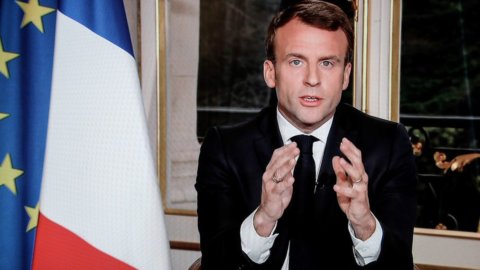In Italy 1 in 10 people suffer from food poverty and is unable to afford a regular meal, of these 1 are minors. More and more people cannot afford a meal with a protein component every other day, and this figure has more than doubled since 300, from 2007% of households to 6%.
65% of the entities affiliated with Banco Alimentare declared a moderate to strong increase in their clients, in particular Italian adults, unemployed, indebted and separated or divorced people who ask to be able to receive a food package. The main cause of poverty in 2014 was job loss in 80% of cases. Poverty seems to be a chronic condition in our country, where in 2014 47% of the institutions did not report people who had left the condition of need, a percentage that rises to 57% in the southern areas where poverty is quantitatively more widespread and more persistent.
“This survey on food poverty in Italy – he says Giancarlo Rovati, Professor of Sociology at the Catholic University of Milan and curator of the research – photographs two worlds in close relationship with each other: the world of those who suffer the hardships of poverty and the world of those who seek to alleviate and defeat them. The geography of solidarity thus offers hope to the geography of poverty. However, the resources for the fight against poverty must be significantly increased in order to move from the irreplaceable phase of assistance to that of social inclusion."
“These data on poverty represent the extent of the challenge that the Government is called not only to fight, but to overcome – declares the Minister Maurizio Martina This is why we wanted to strengthen support for the poor, bringing the food distributed this year to 100 tonnes with our food aid programme, and with the Ministry of Labor we have allocated over 400 million euros for this initiative until 2020, making the most of European resources as well. At the same time, precisely with charitable organizations including the Food Bank, we are working with large-scale distribution and industry to increase the recovery of surpluses: our goal is to bring the food saved and donated to 2016 million tons in 1 who needs it. To achieve this, we want to implement the "SprecoZero" plan, making it easier for companies to donate than destroy food, with a cultural leap forward on this front as well".
The detailed picture offered by the research illuminates a situation that the Food Bank faces on a daily basis, in its support work for the 9.000 affiliated Charitable Structures. “The information gathered is even more dramatic – says the President Andrea Giussani – due to the persistent paradox of the waste of still edible food in the food chain. We will disseminate the contents of the study also to increase the number of companies which, following the example of those who are already doing so today, are willing to donate food that can no longer be marketed, saving it from waste and allocating it to social purposes and to support our business with contributions as they have done for this occasion in different ways Deutsche Bank Italia and PwC”.
“We are honored – he comments Flavio Valeri, Chief Country Officer Italy for Deutsche Bank, which contributed to the realization of the research - to once again support Banco Alimentare in their commendable activity of supporting people in need in terms of food. It is, in fact, a growing problem that affects a significant segment of the population. In recent years, as a result, organizations that help the needy are no longer able to meet the demand for subsidies. It therefore becomes essential to help those who help in a structured and continuous way”.
“The activities carried out in favor of Banco Alimentare – he declares Francesco Ferrara responsible for CR of PwC in Italy – are part of the broader framework of PwC's CR activities which aim to bring value to the organizations we work with beyond simple donations. In this case, our skills at the service of BA have made it possible to accurately map the activity of charitable structures and to support future intervention strategies. We are satisfied and proud of this".
Even at the Expo Banco Alimentare fights food waste, thanks to the agreement with Expo Milano 2015 and the Triulza farmhouse foundation. In the first two months, over 5.000 kg of food were recovered, including bread, pasta, tomato puree and various canned goods, fruit, vegetables, cured meats and ready meals. The products were distributed to some of the 250 charitable organizations in Milan affiliated with Banco Alimentare, which assist over 54.000 people. "Starting today, thanks to the support of the Carrefour Foundation, we will have a refrigerated container available to store food - declares Andrea Giussani - and this will allow us to increase the collection of food for the neediest".
“The relationship between Carrefour and Banco Alimentare was born five years ago – he comments Grégoire Kaufman Sales and Marketing Director Carrefour Italy – and yielded excellent results. Food products that can no longer be marketed in the Group's points of sale in various Italian regions were donated to the Banco Alimentare Foundation, which collected and distributed them through its network throughout the country. The initiative we are presenting today confirms the value of our relationship with Banco Alimentare, further strengthening it”.





